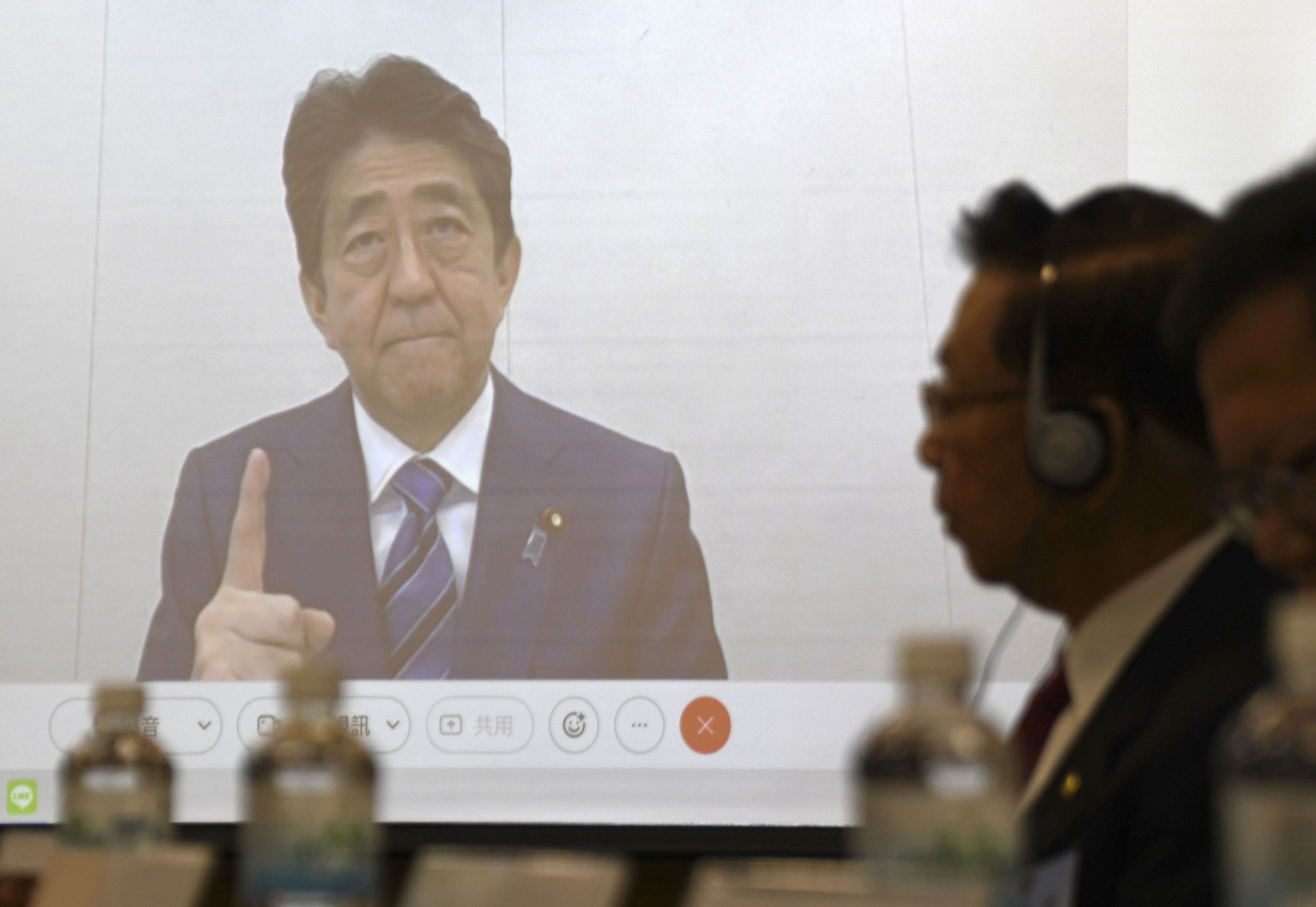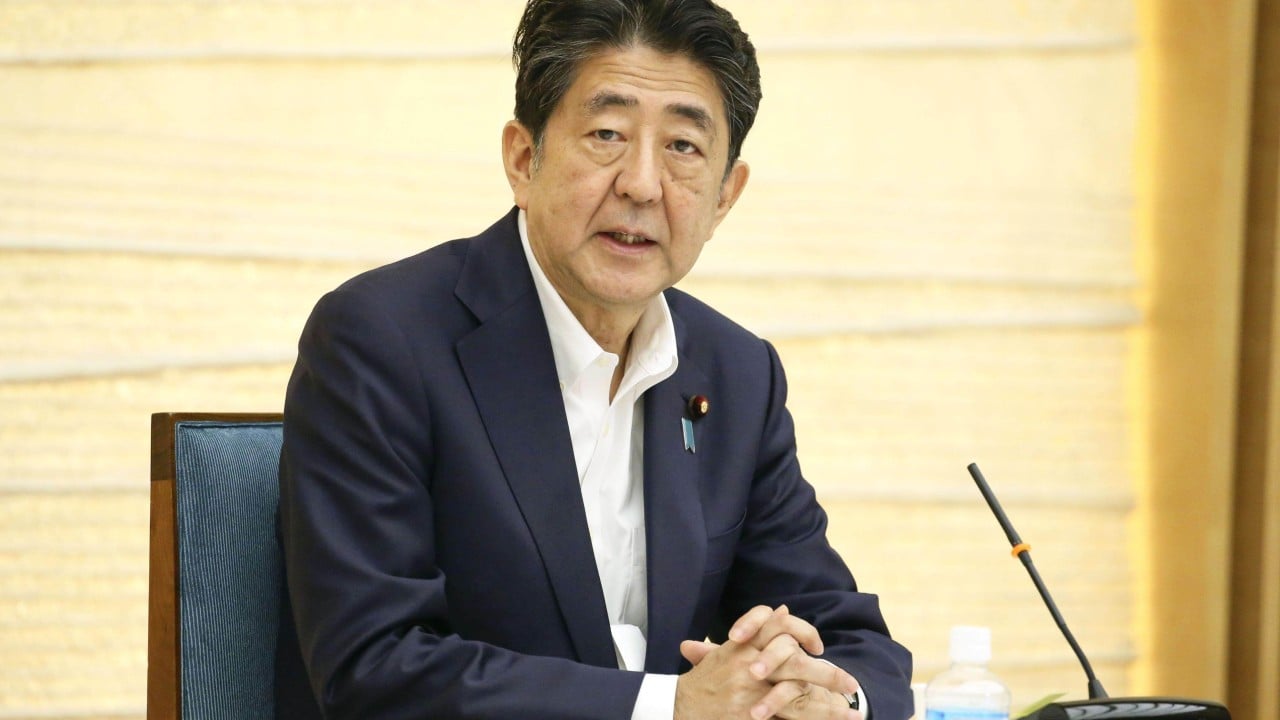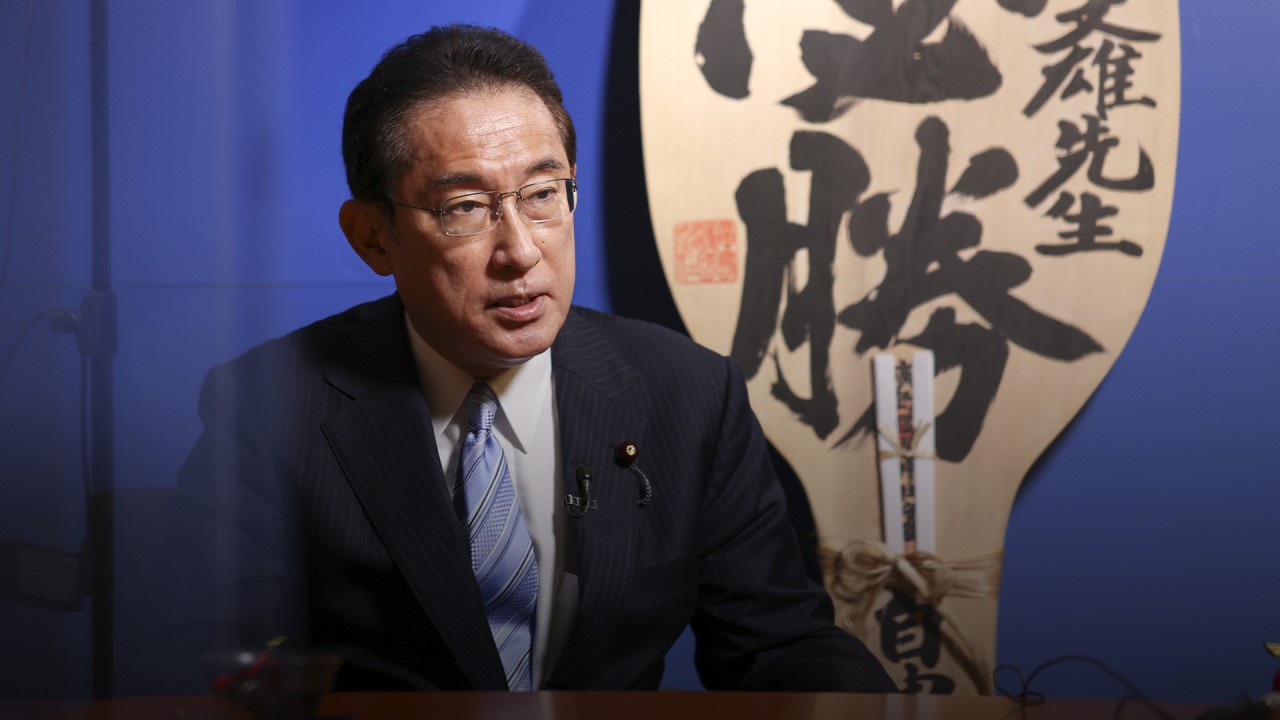
Why is Shinzo Abe stirring the Japan-China pot with remarks about ‘suicidal’ attack on Taiwan?
- Two warnings about Chinese military action by the former PM in as many weeks may be aimed both at Beijing and Abe’s Liberal Democratic Party: analysts
- Some say Abe is now free to say what he was thinking all along as leader. Others suggest he is trying to box in PM Fumio Kishida, who is perceived as ‘pro-China’
On Tuesday, Abe said in an online address to a security forum that Beijing must avoid antagonising other nations and stop demanding more territory from its neighbours.
“An adventure in military affairs, if pursued by such a huge economy as China’s, could be suicidal,” said Abe, who stepped down in October of last year but has chosen not to settle into the role of a backbencher.
“We must urge it not to pursue territorial expansion and restrain from provoking, often bullying, its neighbours because it could harm its own interests,” he added.
Those comments attracted swift criticism from Beijing, which considers Taiwan to be a renegade province that must eventually be reunited with the mainland, by force if necessary.
Free to speak his mind
No longer constrained by the need to be wholly diplomatic in his pronouncements, Abe is now able to say what he was probably thinking while still in power, analysts say.
“My immediate reaction to these comments is that Abe now feels free to say exactly what he was thinking when he was prime minister, but could not because it would have been far too controversial,” said Akitoshi Miyashita, a professor of international relations at Tokyo International University.
“What he says is correct, however, because a contingency involving Taiwan would inevitably have a serious impact on Japan and there are thousands of US troops at bases here who would of course be involved,” he said. “In that sense, he is correct in saying that Taiwan’s security is inseparable from that of Japan.”

Kishida might very well have reached the same conclusion, he added, but was unable to give voice to that position for the very same reason that Abe never felt able to when he was prime minister – concern at provoking a backlash from Beijing.
Jeff Kingston, director of Asian studies at the Tokyo campus of Temple University, said Kishida might be “having trouble emerging from Abe’s shadow” and that the former prime minister was still doing all that he could to influence the government’s policies towards China.
Can post-Abe Japan leave China’s shadow to lead Asia?
“He’s trying to box Kishida and Hayashi in, which is what the right-wing of the party wants because they are concerned that the foreign minister is too pro-China and that Kishida favours engagement and diplomacy with Beijing,” he said. Those concerns have been heightened by the suggestion that Hayashi may respond positively to an invitation to travel to Beijing for talks with his Chinese counterpart.
He pointed out, however, that Abe appeared to be “pragmatic” when he first came to power in 2006, making his first overseas visit as prime minister to China in an effort to rebuild a bilateral relationship that had taken a battering under his predecessor, Junichiro Koizumi.
Abe was still firmly conservative in his political leanings but he was at the time open to the idea of applying diplomacy to the relationship, Kingston said. In the intervening years, however, Beijing had opted for a more confrontational approach to other nations, which had forced Tokyo to respond in kind, he said.
Chinese power losing ground to US in increasingly ‘bipolar’ Asia: report
“As China has escalated militarily, the security situation has become riskier for Japan and Abe had to respond to the changes in that security environment and China’s belligerence,” Kingston said.
The escalations do not bode well for plans to mark the 50th anniversary of the normalisation of diplomatic relations between Beijing and Tokyo in September 2022, the analysts said.
They were also likely to be seized upon by conservatives in Japan who are calling for increased defence spending to ensure the nation’s security.



